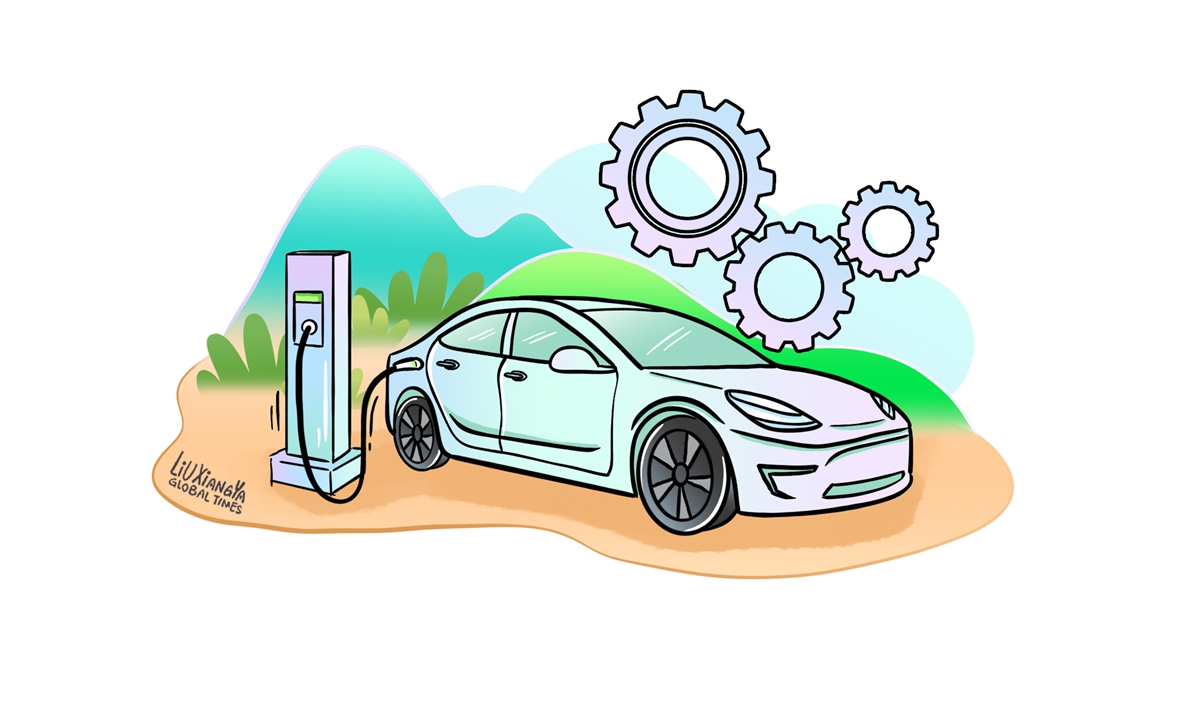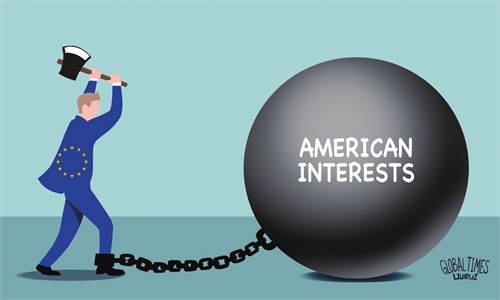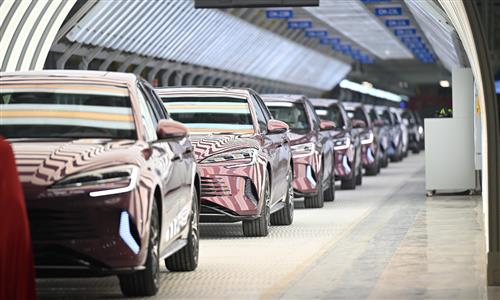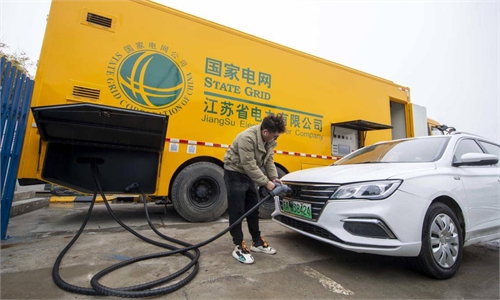
Illustration: Liu Xiangya/Global Times
Regardless of whether Hungary will become the site for BYD's first car factory in Europe or not, it is believed the Chinese electric vehicle (EV) giant's plan to manufacture EVs locally in Europe is moving forward. China and Europe have broad space for cooperation. Finding a common denominator on the resolution of trade disputes has never been an easy single-choice question, but the two sides seem to have little choice but to finish the test.Chinese automaker BYD is set to announce the location of its first European car factory before the end of the year, Reuters reported on Saturday, after a German newspaper, citing unidentified sources close to BYD, said the decision has already been made internally and the factory will be located in Hungary.
For BYD, the world's leading manufacturer of EVs, Europe is part of a massive global expansion. Why is BYD's factory location receiving so much global attention? It is because the plant will be a source of jobs, revenue, taxes and innovation for the local economy. Many European countries hope to get a piece of the cake created by Chinese automakers' investment.
Whether it is in the EV industry or the long upstream and downstream industry chains, there is great potential for cooperation between China and the EU. Cooperation outweighs competition, but some policymakers in the EU are not aware of the danger of scaling down cooperation or even practicing trade protectionism. The European Commission in October started an anti-subsidy investigation into Chinese EVs, seriously damaging the atmosphere of cooperation.
As reported by CNBC, China is the world's largest EV market with 5.9 million units sold in 2022, capturing 59 percent of EVs sold globally. China has some key advantages in making itself an EV superpower. The EU should push back on the idea that it wants to suppress Chinese EV companies and slow down China's development pace in the EV sector, because it is impossible to do so in reality.
If Europe chooses the road of conflict and confrontation, instead of cooperation, it will lead to a lose-lose situation for both sides, leaving the US EV sector as the sole winner. Europe needs China for its broad market and investment, and vice versa. Although facing multiple difficulties and challenges, China and the EU have no better choice than cooperation and avoiding a zero-sum mentality.
Chinese EV makers are drawn to Europe, with some industry insiders saying that a factory in Europe can be profitable if sales exceed 100,000 vehicles. This means opportunities rather than risks for the European economy. As reported by the Xinhua News Agency in July, China's Sunwoda Electric plans to build a power battery factory for EVs with an investment of 580 billion Hungarian forints ($1.7 billion) in Nyiregyhaza, northeast Hungary. Sunwoda, one of the world's leading battery makers, will initially invest 93 billion Hungarian forints in the project, creating "several thousand" jobs.
China and the EU should develop a realistic approach of resolving their differences in stages, gradually accumulating achievements and finally boosting practical cooperation in the EV industry, establishing institutional arrangements, and promoting the collaborative development of EV trade and investment.
In this process, the interests of both sides should be met by upholding the maximum common denominator. If either party's interests are sacrificed due to factors such as trade protectionism or geopolitical tensions, it will be unacceptable and unsustainable.
Dialogue and consultation is the best method to boost investment growth and further improve the trade and investment environment. From this perspective, it is necessary to promote the progress of the China-EU Comprehensive Agreement on Investment (CAI). The CAI offers the EU enormous benefits by giving its companies wider access to the stable and fast-growing Chinese market.
The influx of Chinese investment in the EU, including in the EV sector, will address some of the bloc's most acute issues, such as unemployment and inflation. The growing willingness of Chinese EV enterprises to invest in Europe has again underscored the necessity of strengthening cooperation between China and Europe and promoting the China-EU CAI.
The author is a reporter with the Global Times. bizopinion@globaltimes.com.cn



